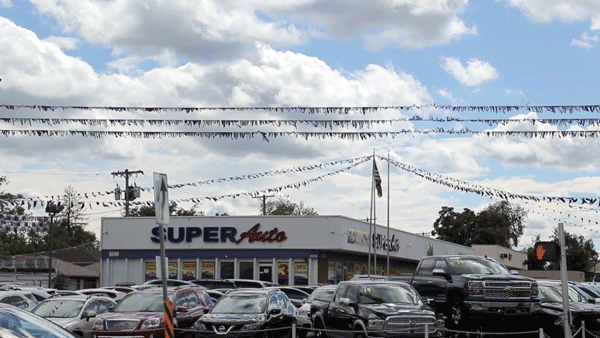
Colfax Avenue is home to 40 Denver car dealerships, making the changing corridor one of the top places in the city to buy vehicles.
Some dealerships worry that emphasis on revitalizing the thoroughfare, rising property values and the continued push for alternative transportation options could one day drive their auto businesses out of the area. Others in the community say moving auto sellers would be good for the corridor longterm and free up space for apartments and condos and new businesses.
Mike Abramov has spent the majority of his adult life selling cars on the corridor. For the past 12 years he's owned and operated DJ Mike Auto Sales east of Quebec Street on the 7500 block of East Colfax Avenue.
"There’s nothing else that I know or I can see myself doing," Abramov said.
Abramov hopes to be able to buy his property from his landlord someday, but until he owns the space, he said, he's sitting on a "ticking time bomb" where an investor or developer could come and offer hundreds of thousands of dollars for the land and force DJ's out.
"I’m used to the location, and I’m very well known in the neighborhood," Abramov said. "I have at least 15 neighbors that call me when it snows. I have a plow truck, and I just plow the neighborhood."
"It’s just a community for me because I grew up in the area. I spend more time here than at home."
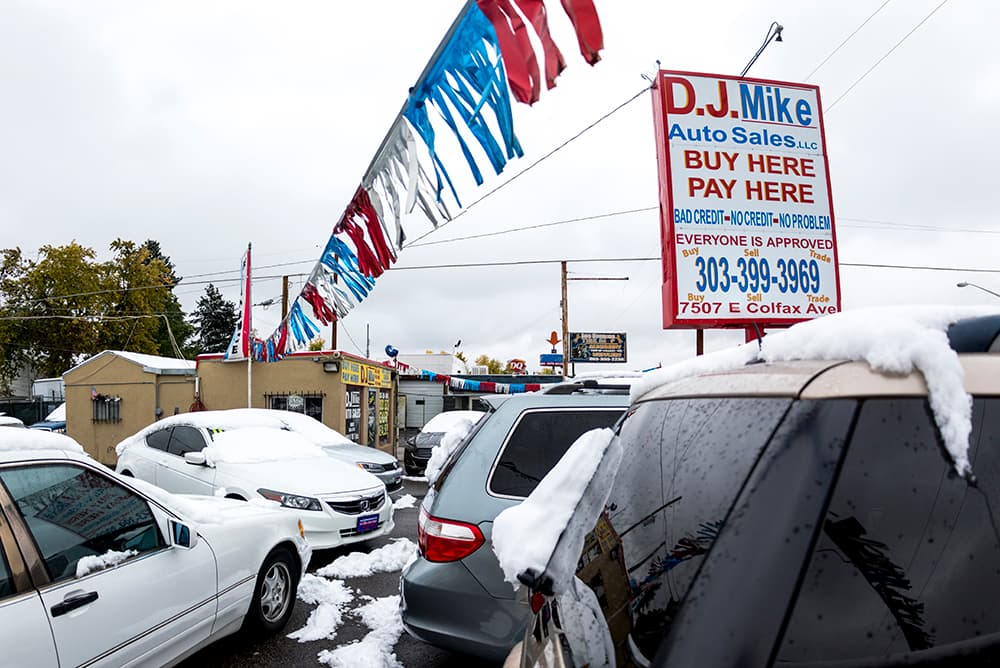
Some people wouldn't mind seeing the car dealers roll out if it meant developers could add more homes and denser development to Colfax.
More than a dozen auto dealerships are congregated from Colorado Boulevard to Yosemite Street, according to Monica Martinez, executive director of The Fax Partnership.
The nonprofit works with community leaders and groups to advocate for building more affordable housing on the East Colfax corridor within the three miles east of Colorado Boulevard.
"What could you do to a car dealership? Build a building over it?" Martinez said.
"Unfortunately, the vision I have of Colfax being this pedestrian friendly, transit-rich, mixed-income community doesn't have space for car dealerships," she said. "But where do they go because warehouse space is so valuable in Denver? You almost feel the place they go is the suburbs, but don't quote me on that."
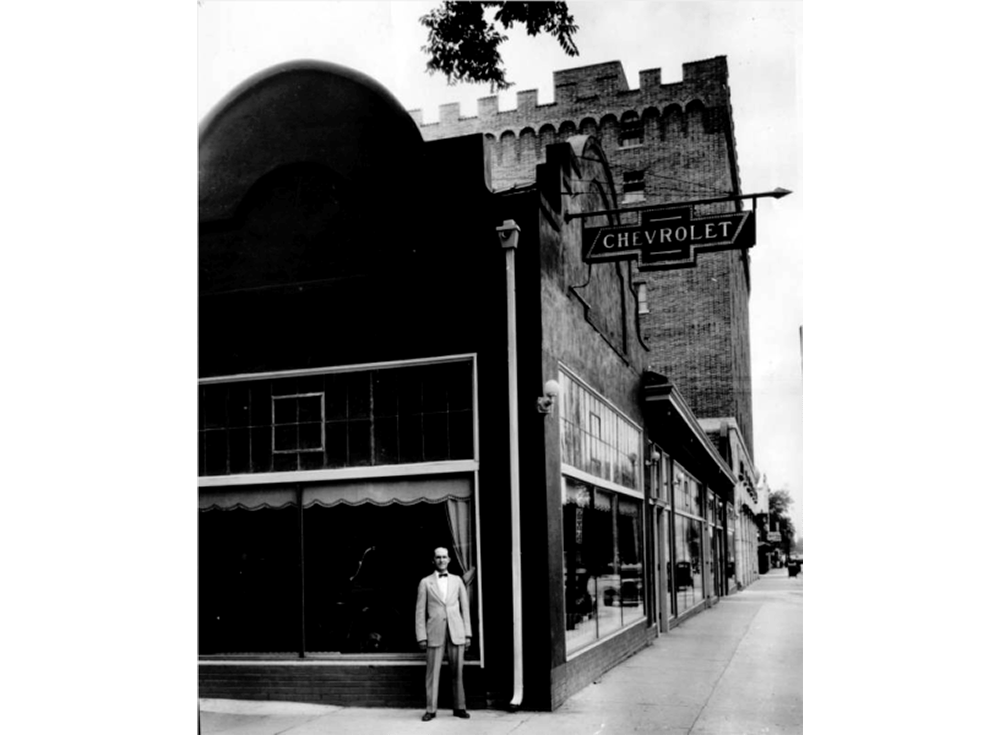
Auto dealers have found a home on the Colfax corridor for more than a century. In 1908, the electric car manufacturer Fritchle Automobile and Battery Co. set up shop for near East Colfax Avenue and Clarkson Street in the area that now holds the Fillmore Auditorium.
The corridor's attracted big players over the years including the largest Toyota dealership in the country in 1985 with Stevinson Toyota near Indiana Street and West Colfax Avenue in Lakewood.
Today, 40 out of Denver's 302 motor vehicle dealerships have Colfax addresses, according to licensing data from the Colorado Department of Revenue.
Jefferson County, where Lakewood is located, has even more Colfax car dealers (42). Aurora, split between Arapahoe and Adams County, has seven dealerships on the corridor, based on the state data.
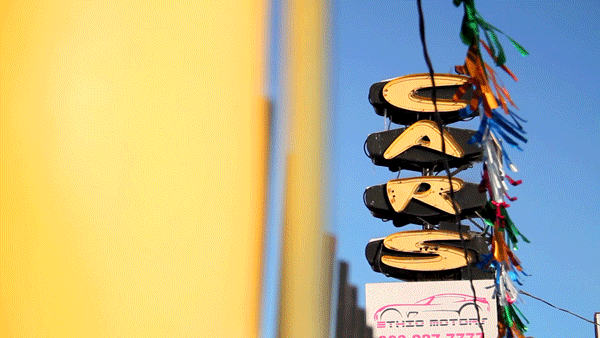
"Denver is not the only location where they think that for whatever reason dealerships are not the highest and best use of space," said Todd O'Connell, CEO of the Colorado Independent Automobile Dealers Association.
Several areas have already been rezoned so that when dealers move out they cannot be replaced by others looking to sell cars, O'Connell said.
O'Connell admits car sales don't happen the way they once did. Now with the internet, dealers won't necessarily live or die based on where they're located.
"A high-density traffic count location is not a guarantee of success anymore," he said. But nearby locations still offer service and availability that customers appreciate.
Plus, he said, when auto sellers leave, they take with them the money they raise for schools and charities as well as the tax dollars they send to local governments.
"When you drive a car dealership out, you lose a very valuable small business that will take those contributions to another location," he said.
In Denver, vehicle sales from the corridor put $2.95 million in the city coffers from 2012 through 2016. That's about 4 percent of the $83 million brought in from taxes on used and new car sales during the five-year period, data from the Denver Department of Finance show.
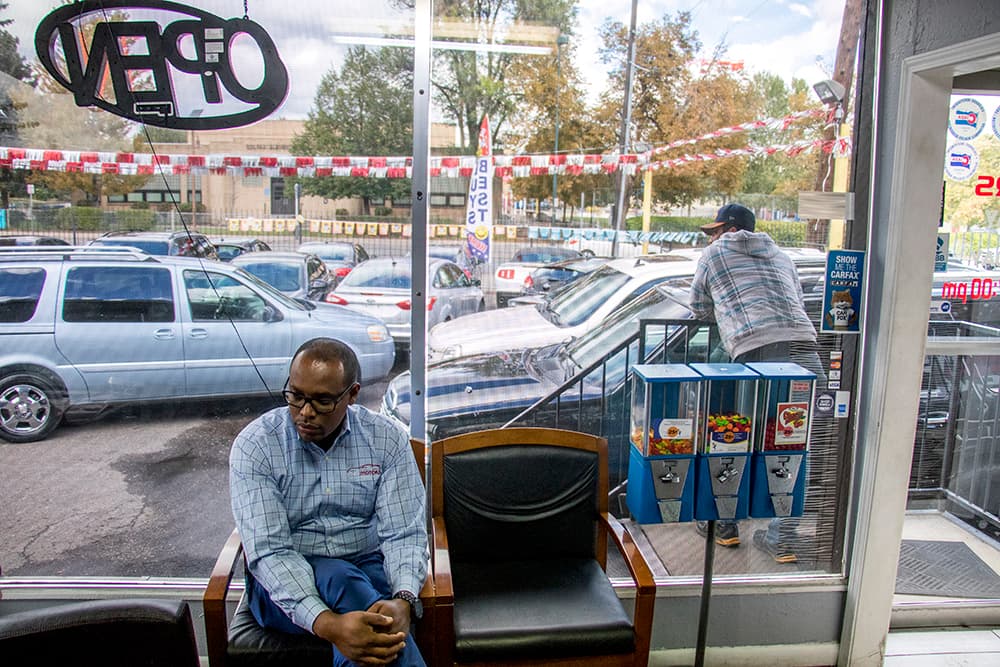
Henok Bedane said he's been approached a few times by people looking to buy the location of Ethio Motors near the southeast corner of Tennyson Street and West Colfax Avenue. It's not an unexpected occurrence considering the nearby addition of the Alamo Drafthouse Cinema and ongoing development at Sloans.
Bedane doesn't own the property and is "begging the owner" to sell to him if they ever want to cash in on the property, he said.
"The transformation is good. I don't have any problem with it. I like to see things get improved, of course. Who hates having a nice environment?" Bedane said. "But at the same time, people that buy property here have to work with us."
Subscribe to Denverite’s newsletter here.
Business & data reporter Adrian D. Garcia can be reached via email at [email protected] or twitter.com/adriandgarcia.












